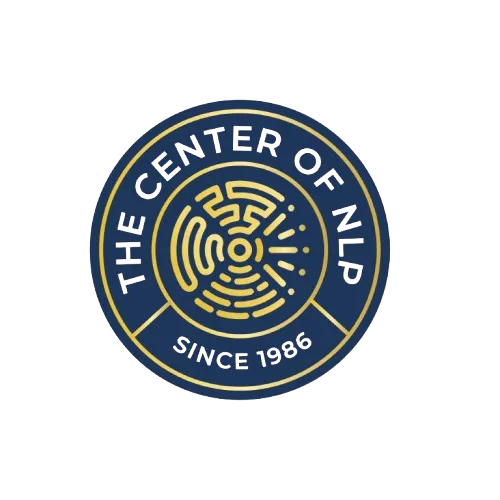
Can NLP Presuppositions Improve Workplace Communication?
NLP presuppositions play a key role in effective workplace communication, going far beyond just speaking clearly or sending emails. Misunderstandings, lack of clarity, and misaligned expectations can slow productivity, cause tension among colleagues, and reduce overall team morale. Leaders, managers, and professionals often struggle to connect in ways that genuinely influence and inspire their teams.
This is where NLP presuppositions can make a transformative difference. By applying the principles of Neuro-Linguistic Programming, professionals can improve communication, build rapport, and foster a workplace culture of trust and collaboration.
What Are NLP Presuppositions?
NLP presuppositions are a set of foundational assumptions about human behavior and communication. They are flexible guidelines that help individuals navigate interactions with clarity, empathy, and influence. Unlike rigid rules, presuppositions shape how we interpret behavior, respond to challenges, and communicate effectively.
Some commonly applied NLP presuppositions include:
Everyone has the resources they need to succeed. This encourages leaders to help others uncover hidden strengths.
The meaning of communication is the response you get. Adjusting the message for clarity and impact ensures understanding.
People make the best choices available to them. Leaders approach conflicts with understanding, not judgment.
Resistance is a sign of a lack of rapport, not failure. This mindset shifts frustration into problem-solving.
Understanding these principles allows professionals to approach conversations with confidence, adaptability, and effectiveness.
Elevate your leadership skills through NLP leadership techniques – Sign up today!
Why NLP Presuppositions Matter in the Workplace
Applying NLP in the workplace provides tangible benefits for both individuals and teams. Here’s how:
1. Enhances Communication Skills
Using NLP presuppositions helps professionals adjust their communication style based on how others perceive and respond. For example, if a team member seems disengaged during a meeting, acknowledging that their behavior reflects perception rather than intention allows the leader to reframe the message. This ensures a clearer understanding and reduces repeated misunderstandings.
2. Builds Up Leadership with NLP Principles
NLP leadership is about guiding teams with empathy and influence. Leaders who integrate presuppositions foster trust, respect, and motivation. Applying “everyone has the resources they need” encourages managers to focus on solutions instead of assigning blame, creating a culture of empowerment and accountability.
3. Reduces Conflicts and Misunderstandings
Assuming positive intent in conversations helps diffuse tension and encourages collaborative problem-solving. During project disagreements, recognizing that colleagues make the best choices available reduces frustration and fosters compromise.
4. Improves Personal Growth and Professional Relationships
Practicing NLP in the workplace cultivates self-awareness and adaptability. Employees learn to recognize their own communication patterns, emotional triggers, and behavioral responses. This insight not only improves interactions but also enhances career growth by building credibility and influence among peers.
How NLP Presuppositions Improve Team Collaboration
One of the most overlooked benefits of NLP presuppositions in the workplace is how they enhance team collaboration. By assuming positive intent and recognizing that everyone has the resources to succeed, teams can approach challenges with understanding rather than blame. When meetings are guided by these principles, employees feel heard, respected, and motivated to contribute. Leaders can encourage open dialogue, which fosters innovation and stronger problem-solving.
Practical Ways to Apply NLP Presuppositions in Daily Work
Implementing NLP presuppositions doesn’t require complex theory. Here are some actionable strategies:
Observe and Adjust Communication: Pay attention to verbal and non-verbal cues. Adjust tone, clarity, and language to ensure your message is understood.
Assume Positive Intent: Approach disagreements assuming everyone is doing their best. This reduces tension and encourages collaboration.
Focus on Outcomes: Align team conversations with desired results rather than dwelling on obstacles.
Practice Active Listening: Truly listen without interrupting or preempting responses. Active listening fosters trust.
Use Positive Language: Frame feedback constructively to inspire motivation.
Check for Understanding: Ask clarifying questions to confirm your message was received as intended.
Common NLP Presuppositions and Their Workplace Benefits
Understanding key NLP presuppositions and applying them strategically can greatly enhance workplace communication and collaboration. Here are some of the most practical presuppositions and their benefits:
Everyone has the resources they need to succeed: Encourages leaders to support employees in unlocking hidden skills and strengths.
The meaning of your communication is the response you get: Reminds professionals to adjust their messages for clarity and effectiveness.
People make the best choices available to them: Promotes empathy and reduces judgment during conflicts.
Resistance is a sign of a lack of rapport, not failure: Encourages managers to build connection before persuasion.
There is no failure, only feedback: It helps teams approach challenges as learning opportunities rather than setbacks.
By consciously applying these presuppositions, teams can reduce misunderstandings, improve collaboration, and foster a positive workplace culture.
Improve collaboration and engagement with NLP in the workplace – Book your spot now.
Using NLP Communication to Resolve Conflicts
Conflict is inevitable in any workplace, but NLP communication strategies make it manageable. By focusing on the response you get rather than the words you say, professionals can reframe conversations and address misunderstandings calmly. For example, if a team member reacts defensively, understanding that resistance is often a signal of a lack of rapport allows managers to adapt their approach. This leads to quicker resolutions and a more harmonious work environment.
How NLP Leadership Transforms Workplace Culture
Leaders who adopt NLP presuppositions can transform the culture of their workplace. Key benefits include:
Communicating Vision Clearly: Align language with team goals to inspire participation.
Building Trust and Rapport Quickly: Understanding perspectives fosters strong relationships.
Navigating Challenges Gracefully: Handle difficult conversations with confidence and empathy.
Coaching with Insight: Guide employees toward solutions and growth without being overbearing.
Encouraging Accountability: Emphasizing that everyone has the resources to succeed fosters responsibility and empowerment.
For example, a manager noticing a team member struggling with deadlines can explore what resources or support are needed, improving both performance and morale.
NLP Leadership: Guiding Teams with Empathy and Influence
Effective leaders don’t just manage tasks; they guide with insight. NLP leadership principles, rooted in presuppositions, allow leaders to understand team dynamics, communicate clearly, and inspire action. By practicing active listening, assuming positive intent, and focusing on outcomes, leaders can create a supportive environment where employees feel valued and empowered. Over time, this approach boosts productivity, reduces turnover, and strengthens organizational culture.
NLP in the Workplace: Real-World Applications
Team Meetings: Maintain constructive discussions even during disagreements.
Client Interactions: Apply NLP communication strategies to improve clarity and rapport.
Conflict Resolution: Focus on outcomes, assume positive intent, and adapt messages.
Leadership Coaching: Equip employees with NLP tools to enhance confidence and decision-making.
These applications show that NLP communication is practical, measurable, and directly relevant to professional environments.
How NLP Presuppositions Enhance Leadership and Team Performance
Leaders who understand and apply NLP presuppositions are better equipped to guide teams, handle conflicts, and motivate employees. Some practical ways NLP principles enhance leadership include:
1. Improved Decision-Making: Leaders can make more informed choices by recognizing different perspectives.
2. Effective Feedback: Feedback is framed positively, focusing on solutions rather than mistakes.
3. Stronger Team Alignment: NLP encourages clarity in communication, ensuring that team goals are well understood.
4. Enhanced Motivation: By assuming positive intent, leaders can inspire employees to take initiative and ownership.
These applications show that NLP presuppositions are not just communication tools; they are essential strategies for effective leadership and higher-performing teams.
Ready to apply NLP presuppositions for better results? Let’s get started today!
In Summary
NLP presuppositions are not just theoretical; they are practical tools that enhance workplace communication, leadership, and collaboration. Leaders, coaches, and professionals who embrace these principles experience clearer communication, stronger relationships, and more engaged teams.
Book your NLP consultation or workshop at the Center of NLP and start transforming your workplace communication and leadership skills.
FAQs
1. What are NLP presuppositions?
They are guiding principles that help professionals communicate and respond effectively to improve workplace interactions.
2. How does NLP improve workplace communication?
NLP techniques enhance clarity, rapport, and influence, reducing conflicts and boosting team collaboration.
3. Can NLP presuppositions help leaders?
Yes. NLP leadership helps managers build trust, guide teams effectively, and resolve conflicts with empathy.
4. Are NLP presuppositions difficult to apply?
No. With regular practice, these principles can be incorporated into daily conversations and management strategies.
5. Where can I learn NLP presuppositions professionally?
Center of NLP offers expert-led courses and workshops that teach practical NLP applications for workplace success.
To learn more about NLP training and coaching programs, contact Center of NLP today.
Check Out For more:

